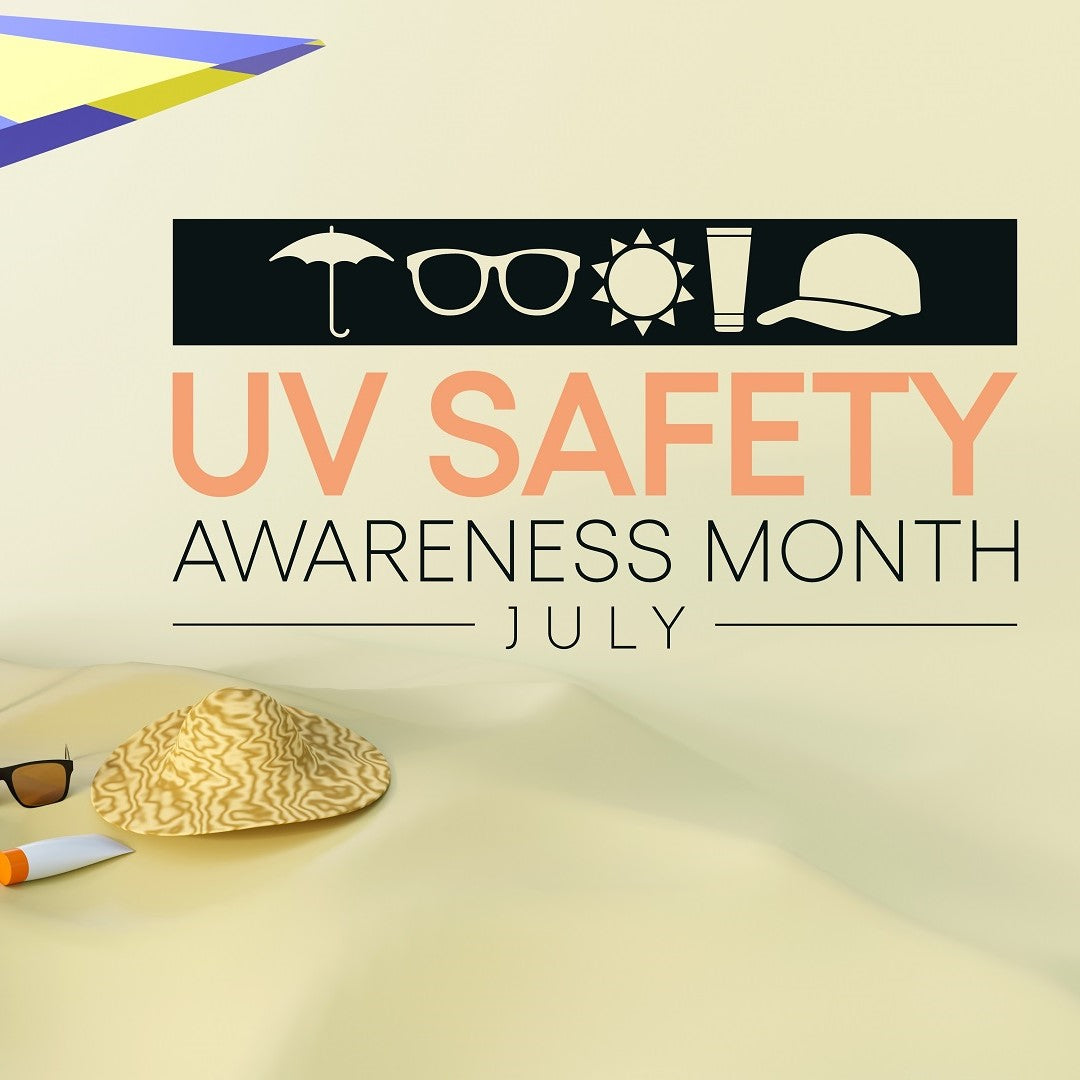In the heart of summer, as we venture outdoors to bask in the bright, warm sunlight, it’s crucial to remember our invisible companion, Ultraviolet (UV) radiation. It's no coincidence that July is UV Safety Month – an essential time to remember the importance of sun protection.
Every year, more than 5 million Americans are diagnosed with skin cancer, making it the most common form of cancer in the United States. Put in perspective, that means 1 in 5 Americans will develop skin cancer in their lifetime. Amid such alarming statistics, UV safety is not just about avoiding a painful sunburn - it's a crucial part of cancer prevention.
What are UV Rays?

UV, or ultraviolet rays, are a form of electromagnetic radiation. Though invisible to the naked eye, they have a profound impact on our skin health. Let's delve into the three types of UV rays: UVA, UVB, and UVC.
1. UVA Rays
UVA rays have the longest wavelengths, and they can penetrate the deeper layers of the skin. They are responsible for immediate tanning and also play a significant role in skin ageing and wrinkling.
2. UVB Rays
UVB rays, with medium wavelength, are primarily absorbed by the epidermis, the outermost layer of the skin. These rays cause sunburns and play a key role in the development of skin cancers.
3. UVC Rays
UVC rays have the shortest wavelength and are the most harmful. Thankfully, our ozone layer absorbs almost all UVC rays, sparing us from their damaging effects.
The Dangers of Ultraviolet Rays
The harm of UV radiation goes beyond just sunburn. Chronic exposure can lead to skin cancer, eye damage (such as cataracts), immune system suppression, and premature aging of the skin.
Prevention is Key
Luckily, protecting your skin from UV radiation is simple. Here's what you can do:
1. Use sunscreen
A suitable sunscreen acts as your primary line of defense against UV radiation. When choosing a sunscreen, remember to consider these key factors: Broad Spectrum protection, Water Resistance, and an appropriate Sun Protection Factor (SPF).
Over at Rejuuv, we have a comprehensive array of sunscreens for every scenario.
• For Daily Use

For everyday activities, EltaMD UV Daily Broad-Spectrum SPF 40 is a fantastic choice. This lightweight, sheer sunscreen provides broad-spectrum protection, shielding you from both UVA and UVB rays.
• For Outdoor Activities
If you're planning more intense outdoor activities, consider the iS Clinical: Eclipse SPF 50+. This water-resistant formula will hold up against sweat and water, providing enduring protection.
• For Children
Children's skin is more sensitive, needing an extra dose of care. The EltaMD UV Facial Broad-Spectrum SPF 30 is a gentle yet effective choice. It's fragrance-free, paraben-free, and non-comedogenic, reducing the risk of skin irritation.
How often should I apply sunscreen?
It's recommended to apply sunscreen every two hours, or immediately after swimming or sweating.
Do darker-skinned people also need sunscreen?
Yes, everyone, regardless of skin color, can get skin cancer.
2. Wear protective clothing
Long-sleeved shirts, long pants, and wide-brimmed hats provide great protection.
3. Seek shade
The sun's rays are strongest between 10 a.m. and 4 p.m. If your shadow appears to be shorter than you are, seek shade.
4. Use extra caution near water, snow, and sand
These surfaces reflect the damaging rays of the sun, which can increase your chance of sunburn.
Can I get sunburned on a cloudy day?
Yes, up to 80% of the sun's UV rays can pass through clouds.
UV Safety Month: Spreading Sunshine, Not Burns
In the spirit of UV Safety Month, remember that sun safety is not restricted to July alone. It’s a year-round commitment, irrespective of your location, weather conditions, or skin type. Consistent use of sunscreens, protective clothing, and eyewear, along with seeking shade during peak sun intensity hours, are simple steps we can all take to protect ourselves.
Remember, we enjoy the sun best when we respect it. Let's use this UV Safety Month as an opportunity to reinforce our commitment to UV safety. Our skin and our health will thank us.

